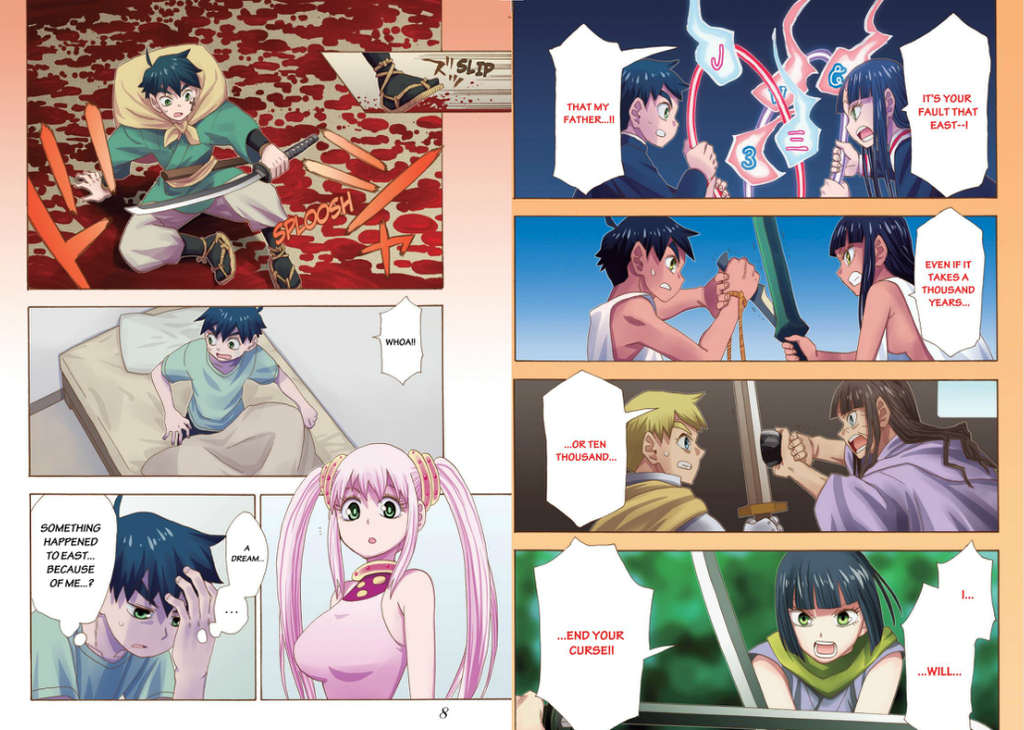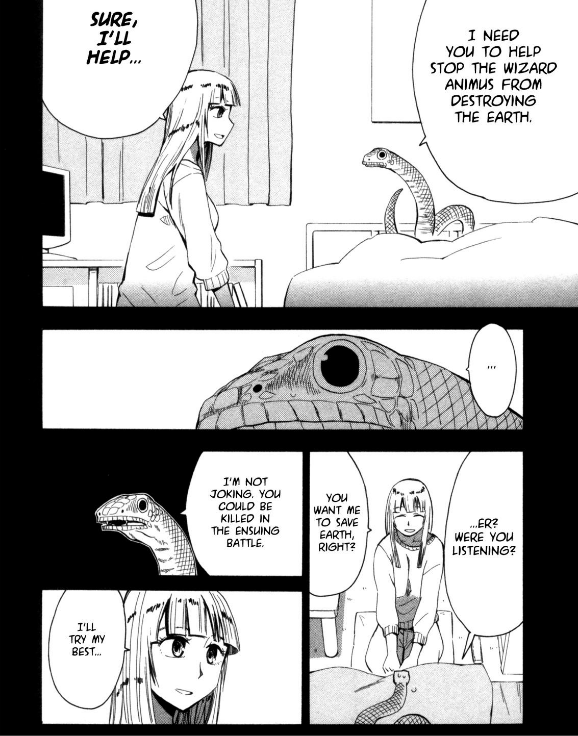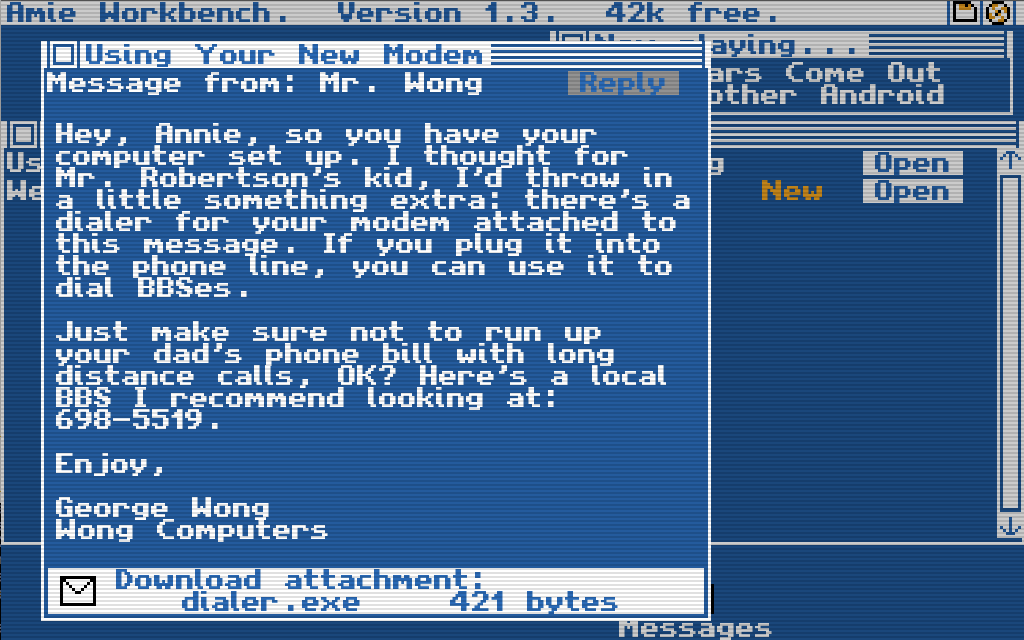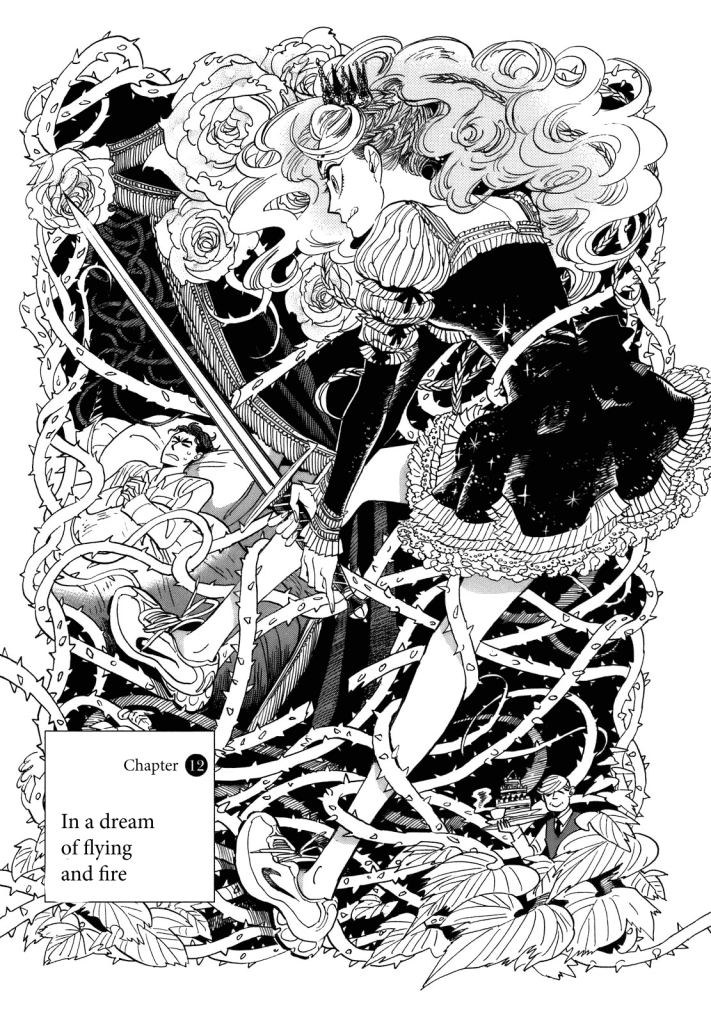There’s no two ways about this: Spirit Circle is a damn good manga. Unfortunately, it’s rather hard to discover this for yourself, as all the synopses I’ve read make it sound incoherent or unremarkable. Take this one, for example:
Fuuta Okeya is a normal 14-year-old boy, except for the fact that he has the ability to see ghosts. A cute girl transfers into his class one day, but acts particularly aggressive towards him. This girl called Kouko Ishigami is followed around by a ghost called East. Fuuta tries to get along with her but ends up failing after she sees the birthmark he usually keeps covered. She then declares him as her enemy, his birthmark as a cursed brand and claims they have a long history, while talking about reincarnation. Who is this girl and how are they connected?
“Oh, it’s another high school story,” you might think. “Is it like Bleach? I’m guessing from the art it’s a comedy-romance and the reincarnation angle is the only unique thing about it. Oh well, high school comedy-romances are a dime a dozen.”
Hell no. I would never have tried this manga out if I hadn’t known it was written by the same person as the one behind Lucifer and the Biscuit Hammer, but I’m glad I did. I think I have enough samples of his writing now to say without hesitation that Satoshi Mizukami knows how to write a moving story.
Basically, Spirit Circle is about the dispute between a boy and a girl that stretches backward and forward to the past and the future and back again, through different reincarnations and universes. In the present day, the boy searches through his past lives to find the reason for the girl’s animosity, while in each life the two fight and try to find a way to stop fighting.
Don’t get me wrong, this manga is definitely funny. There actually is comedy and romance in this series. But each reincarnation of the two rivals lives rich and full lives with their share of tragedy and suffering and peace and joy. Some heavy shit goes down, and not in just the past lives of the two.
The series is available on Crunchyroll’s online manga service. I do have to mention that I read it on my tablet and the app has the annoying tendency to occasionally show me a page that I’d already read. If that happens to you, I recommend exiting the manga and entering it again; that should make the proper page show up.
I’ve found Crunchyroll’s online manga offerings to be rather sparse in number and in quality. One might call it hit-or-miss but in my case I’ve found more misses than hits. This manga, though, is definitely one of the good ones. It’s also being simultaneously published, which means that it’s still not finished. However, from the way the story is going I think it’s almost done. If it sticks the landing then it’s going into my list of favourite series.



